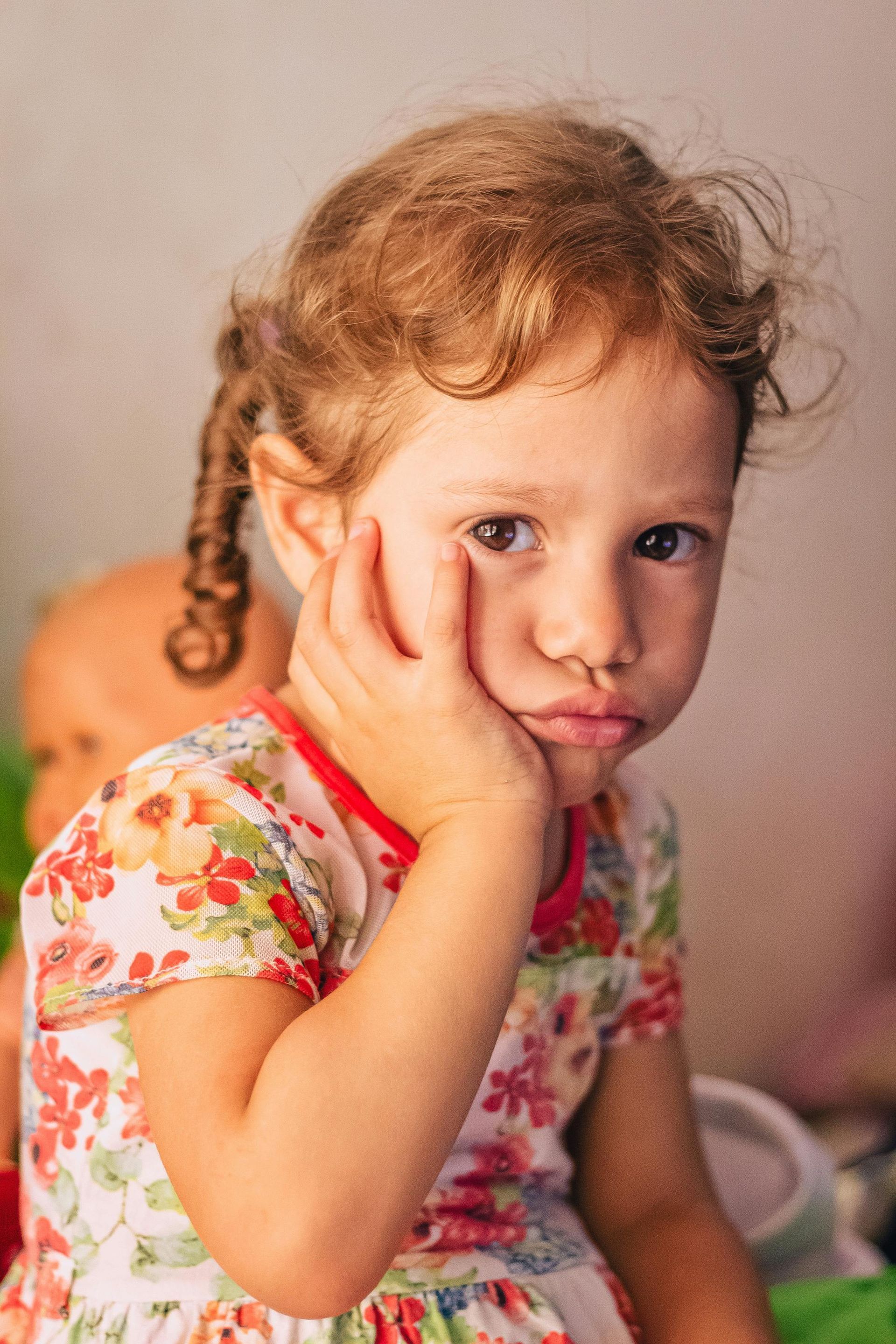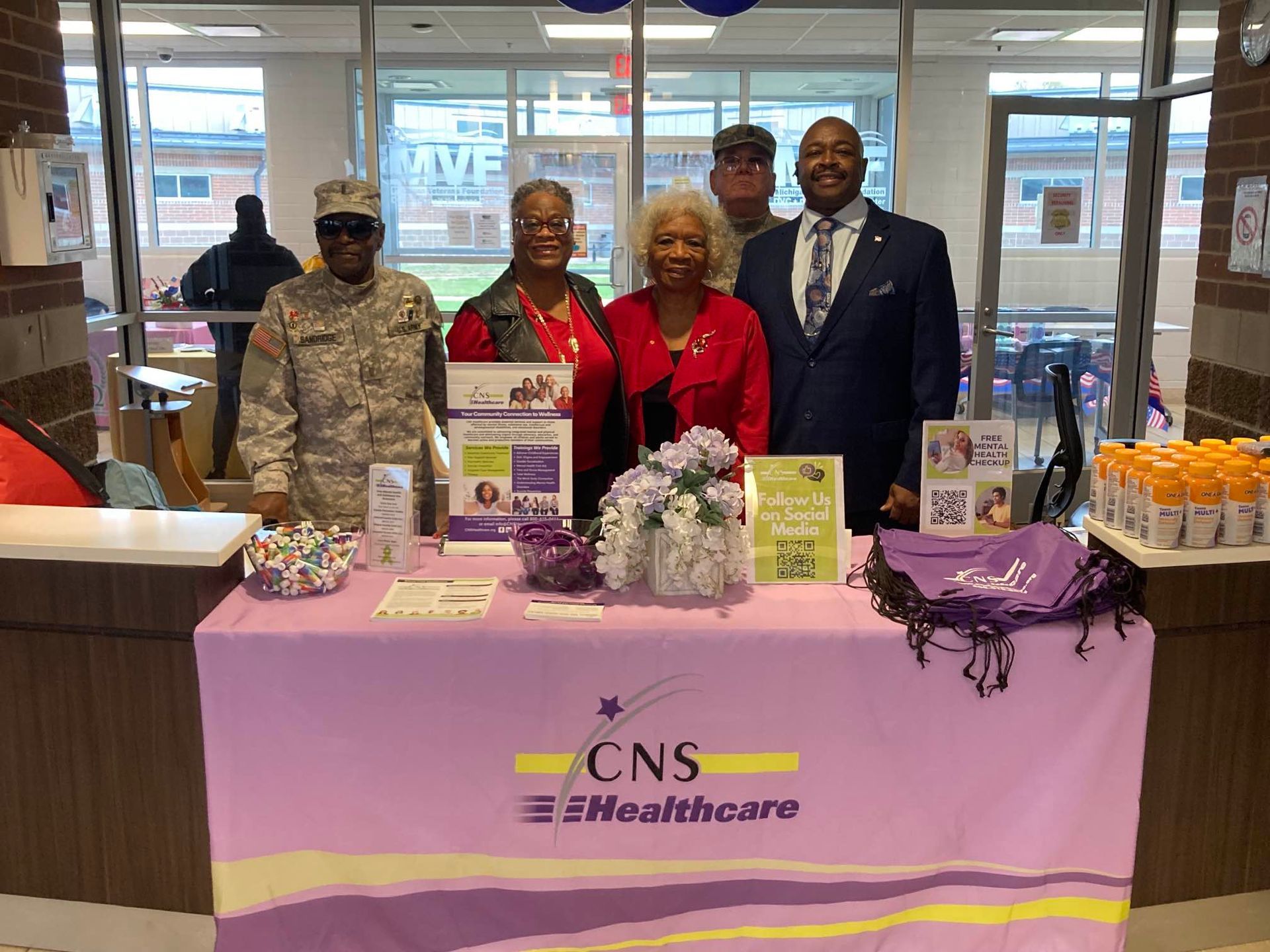The Impact Of Adverse Childhood Experiences-💜
CNS Healthcare • February 28, 2025
These days, it's not uncommon to learn that many adults struggle with the lasting effects of negative
past childhood traumas. These experiences, also known as
Adverse Childhood Experiences (ACEs), are capable of affecting an adult's mental health well into adulthood. While the effects can be significant, there are solutions and methods of getting support.
This post will cover exactly what ACEs are, the impact they have on adults, and how you can prevent and overcome them. Keep reading below to find out how these past experiences can lead to significant life changes as well as build resilience.
Key Takeaways
- Adverse Childhood Experiences (ACEs) are traumatic events that occur before age 18. They include abuse, neglect, or household challenges, and can cause toxic stress and harm brain and body development.
- Over 60% of U.S. adults report experiencing at least one ACE. These experiences often link to health issues like heart disease, diabetes, depression, or early death (CDC-Kaiser ACE Study).
- Toxic stress from ACEs can disrupt learning, emotions, and affect childhood relationships. Without intervention, it can lead to chronic diseases or mental health issues in adulthood.
- Resilience has the power to reduce the effects of ACEs through strong relationships, positive coping strategies like mindfulness or exercise, and trauma-informed care by professionals.
- Preventative methods include creating safe environments for kids with supportive relationships and programs like Oakland County's Healthy Families that provide tools for stability and growth.
What Are Adverse Childhood Experiences (ACEs)?
ACEs are traumatic events that happen in a child’s life before the age of 18. These events may include
abuse, neglect, or challenges at home like domestic violence or parental separation. Childhood trauma from ACEs can cause toxic stress, which in turn changes how the brain and body develop.
It's not surprising that
experiencing ACEs can increase the risk for
health problems later in life. They have been linked to multiple chronic diseases, mental health issues, and even early death.
Additionally, the
CDC-Kaiser ACE Study discovered a strong connection between adverse experiences and
long-term negative effects on health and behavior.
Many children are faced with these challenges every day, impacting their ability to thrive.
Types of Adverse Childhood Experiences
Adverse Childhood Experiences (ACEs) fall into a few different categories, but no matter what specific experience a child has faced, any one of these events will deeply affect a child’s emotional, mental, and physical well-being.
Abuse (Physical, Emotional, Sexual)
Child abuse harms both a child's body and mind. Physical abuse of a child may include
hitting, kicking, or causing any type of bodily harm. Less obvious to spot, but just as damaging, emotional abuse often takes the form of insults, threats, or ignoring a child’s feelings.
Sexual abuse is unfortunately another way that a child experiences trauma. This may involve forcing or involving a child in sexual activities against their will. No matter the type of abuse, physical, emotional and sexual abuse
can leave deep scars and disrupt development.
Children facing abuse often
live in fear, stress,
and anxiety. This
toxic stress affects brain growth and how the body handles future challenges. Abuse is one of the major risk factors for mental health problems like Post-Traumatic Stress Disorder (PTSD).
Abuse also creates higher risks for chronic health conditions, risky sexual behaviors, and substance use disorders later in life. Support can help reverse some of the damage caused by childhood trauma, however, early intervention matters most to ensure a lasting recovery.
Neglect (Physical, Emotional)
Neglect is another type of abuse that can harm a child’s health, emotions, and growth.
Physical neglect happens when basic needs like food, clothing, or safe housing are not met. Emotional neglect occurs when a caregiver fails to provide comfort, love, or support.
Both types quickly create toxic stress that can impact a child's brain development and weaken the immune system.
You may notice the
long-lasting effects of childhood neglect in adults you interact with regularly. These effects include
mental health issues like depression and anxiety, as well as physical issues like heart disease.
In fact, 5 out of the 10 leading causes of death are linked to ACEs like neglect. Fortunately, seeking assistance through trauma-informed care and supportive relationships can help reverse some of the damage caused by neglect.
Failure to meet essential needs is not just harmful—it is preventable.
Household Challenges (Substance Abuse, Domestic Violence, Parental Separation)
Substance abuse in the home can create toxic stress for young children. Any household member struggling with drug abuse can damage supportive relationships, leading to trauma and emotional harm to the child.
Domestic violence is another common challenge that can disrupt a safe home environment.
Children exposed to violence
among family members often have an increased risk of ending up with mental health issues like anxiety or depression.
Parental separation can also cause distress, disrupting stability during critical stages of childhood development.
Studies link these types of adverse experiences to trauma and poor long-term outcomes in adulthood, which could lead to
chronic health problems or even suicide attempts later in life.
ACEs data shows these challenges affect all communities, sounding the alarm that childhood abuse is an urgent public health concern that needs to be addressed in early-life swiftly, and effectively.
Prevalence of ACEs
You might be surprised to know that ACEs are a lot more common than you think.
Over 60% of adults in the U.S. report experiencing at least one type of adverse childhood experience, and these events affect families across all communities and income levels. In Oakland County specifically, children facing abuse or neglect remain at high risk for these experiences.
High ACE scores are often predictors of other serious issues later in life. They connect to 5 out of the top 10 causes of death, including
heart disease and diabetes. Toxic stress that stems from early life events can change brain development and lead to lasting problems in health and behavior.
While these numbers do demonstrate a widespread problem, some solutions such as trauma-informed care can help make a difference for affected individuals.
Impact of ACEs on Childhood Development
In addition to the physical health damages of abuse, traumatic experiences in childhood can be extremely harmful to
brain development. Toxic stress from adverse childhood experiences can actually change how the body handles stress, affecting a child's process of learning, memory, and even their emotions.
Children exposed to abuse or neglect may also struggle with
problem-solving or social skills in school. You can keep an eye out for negative outcomes like increased aggression, anxiety, or trouble concentrating if you think a child is experiencing abuse.
Early support systems like child care services can help reduce these risks and improve children's well-being over time.
Long-Term Effects of ACEs in Adulthood
The long term effects of ACEs are no joke. They can lead to serious physical and mental health problems as adults, affecting both daily life and relationships.
Physical Health Risks
Toxic stress from adverse childhood experiences can cause harm to your body over time. This stress can be linked to serious illnesses like
heart disease, diabetes, and cancer, and studies show ACEs contribute to 5 of the 10 leading causes of death in the U.S. These health risks often develop due to changes in how your body responds to stress.
You may also face higher risks for complications like high blood pressure or obesity as an adult if you have experienced neglect or abuse as a child. Long-term effects of neglect can include chronic conditions that impact your daily life and lower your life expectancy, but early intervention can make a big difference in preventing these outcomes.
Mental Health Challenges
ACEs are very detrimental an adult's mental health, and are
linked to depression, anxiety, and PTSD in adulthood. Because of this, many adults with ACEs struggle with
unhealthy coping habits like substance abuse. Toxic stress from past experiences with abuse changes how your brain will react to stress later in life, without a doubt.
Studies also highlight how can ACEs raise the
risk of suicide and self-harm in adults. Childhood trauma will impact areas such as learning, behavior, and relationships as they grow older.
Seeking help from mental health professionals is crucial for healing and recovery, while
social support plays a critical role in building resilience against these challenges.

Building Resilience Against ACEs
Resilience helps you recover and thrive after negative childhood experiences. It can help protect you against the negative impact of ACEs on your health and well-being. Here are a few ways you can get started:
- Build strong, supportive relationships with trusted friends, family, or mentors. These connections reduce stress.
- Practice positive coping skills like mindfulness, exercise, or journaling. These strategies help you manage emotions and lower stress levels.
- Seek trauma-informed care from trained professionals who understand childhood abuse and its effects on mental health. This approach focuses on safety and healing.
- Focus on protective factors like stable housing, creating a safe environment, and access to healthcare services.
- Participate in community programs such as counseling or parenting classes offered by local groups like the Oakland County Healthy Families program. They provide tools which can help build resilience.
- Promote positive childhood experiences for children in your care that bring joy, stability, and opportunities for learning and growth.
- Improve your daily routines, including eating healthy food, getting enough sleep, and staying active.
Prevention Strategies for ACEs
Preventing ACEs starts with creating safe, stable, and nurturing environments for children.
Supportive Relationships
Supportive relationships play a big role in reversing the damage of ACEs. Having someone who listens to you can lower stress and improve mental health in children.
Creating positive connections with family members, friends, or trusted adults will also help children build resilience against toxic stress.
Programs like home visiting services or foster care often connects children with caring adults. These programs promote safety and stability for vulnerable kids who need adult support. Creating strong bonds can reduce the risks linked to adverse childhood experiences and support better outcomes in adulthood.
Trauma-Informed Care
Trauma-informed care can help adults heal by understanding how trauma affects their life by creating safe spaces, building trust, and offering
various treatment options. This approach recognizes that toxic stress from ACEs changes brain development, and the treatment for each adult may be different.
Specialists trained in this care method will help to reduce triggers linked to an adult's past experiences and work to prevent further harm by considering your specific needs. The goal is to empower them while addressing the mental health challenges caused by adverse childhood experiences.
Conclusion
Adverse childhood experiences (ACEs) can leave deep wounds in an adult's overall health and life. You now understand how
ACEs can affect both children and adults, including their mental health, and their physical well-being. The good news is, resilience can be built with practice.
You can reduce the effects of ACEs by creating and nurturing strong relationships and seeking out supportive care within your community.
Local resources are available if you need help or guidance, and together, we can reduce the impact of ACEs and build a healthier future for everyone.
FAQs
1. What are Adverse Childhood Experiences (ACEs)?
Adverse Childhood Experiences, or ACEs, are traumatic events that occur during childhood, such as abuse or neglect. They can affect the developing child as well as lead to long-term health and additional social problems.
2. How was the impact of ACEs studied?
The Adverse Childhood Experiences Study, conducted by Kaiser Permanente and the Centers for Disease Control and Prevention (CDC), explored the relationship of childhood abuse with later health outcomes using data from sources like the Behavioral Risk Factor Surveillance System.
3. What types of ACEs are most common?
The most common types of ACEs include physical abuse, emotional neglect, household dysfunction, and exposure to violence. These experiences often impact children’s health and well-being into adulthood.
4. Why is understanding ACEs important for public health?
Understanding ACEs can help identify how early trauma links to issues like disease control challenges, mental illness, or social determinants are affecting communities. It also informs preventive medicine strategies in fields like child welfare and social work.
5. Can adverse childhood experiences be prevented or mitigated?
Yes! Research from institutions like Harvard University highlights that supportive relationships can reduce negative effects of abuse over time. The Department of Health emphasizes programs that promote building resilience as part of prevention efforts guided by systematic reviews in journals like ScienceDirect or Preventive Medicine publications.
Newsletter
Recent Posts
SHARE THIS POST WITH YOUR FRIENDS














